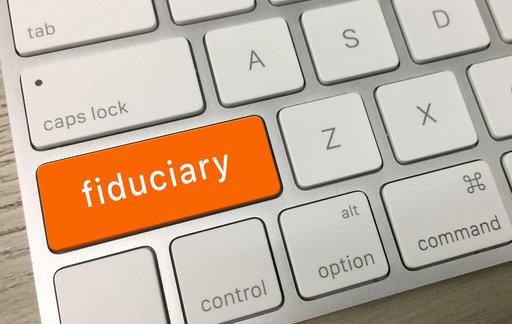We rely on our friends to help us through life’s challenges, and when you’re setting up an estate plan, it can be very helpful to have a trusted friend or loved one by your side. It’s actually vitally important that you appoint a fiduciary to act on your behalf and carry out your wishes if you become incapacitated or pass away. Your trusted fiduciary is legally bound to make decisions with your best interests in mind or in accordance with your written instructions, and having a fiduciary at your side can be invaluable in times of uncertainty.
A single fiduciary may be able to manage your affairs, but this task requires time and attention and can be overwhelming for some people. So, when you decide who to appoint, consider the degree of effort and the burden that the person may face.
If you need to reduce the challenges, you may decide to nominate co-fiduciaries. This ensures that someone can always accept the role, even if one of your appointees is unavailable. Keep in mind that if you choose more than one person, you will need to decide if they must act unanimously or if one can act on your behalf without the consent of the other. Consider naming an odd number of fiduciaries to avoid a deadlock and reduce tension during serious decision-making. To do this, you may want to nominate more than just two fiduciaries or name another individual to cast the deciding vote when necessary.
Co-fiduciaries located in different geographical areas or those who have demanding jobs may need to align their schedules, so decisions may take longer than they otherwise would, and regardless of whether a unanimous decision is required, everyone on your list should be involved in the process of making big decisions on your behalf. It is also important that all parties involved in the decision-making process get along, which can be difficult for some families.
Despite the drawbacks, there are plenty of benefits to having co-fiduciaries. If you’re confident that your appointees can get along and make good decisions together, and there are provisions written into your estate planning documents to address the risk of deadlock, consider appointing several trusted fiduciaries.
Should you decide to appoint just one person, choosing a trusted family member or friend can be a good choice depending on the type of work involved. If your loved ones can’t accept the responsibility or do not want to pick one person over another, look to a professional to represent your needs. A professional will be available to manage your assets and make unbiased decisions based solely on your wishes and best interests. Although appointing someone outside of the family may ruffle some feathers initially, it can reduce tension and animosity over time.
Whether you opt to appoint several fiduciaries, family members, or professionals, selecting a fiduciary can help you protect the legacy you have worked so hard to build. Should you become incapacitated, you’ll be grateful to have someone you can trust represent you in managing your property, taking care of your finances, and addressing other legal matters instead of having the court appoint someone you likely would not have chosen.
Get the guidance you need to plan for your future. We are here to help memorialize your wishes to protect your loved ones and safeguard your assets.
You can schedule a call with us or reach us directly at 855.528.9637 to learn more about how best to plan today to protect those most important to you.








